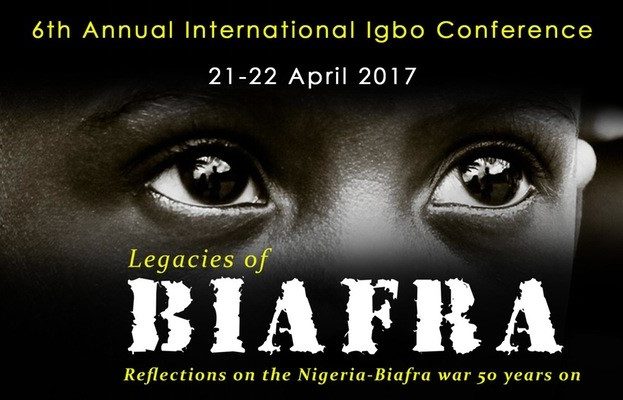
The ‘Legacies of Biafra’ conference seeks to explore the on-going impact of the war locally and globally, considering how the first civil war in independent Africa has influenced the perception of the continent internationally as well as its impact on the political and social structures within Nigeria. As 2017 marks the fiftieth anniversary of the outbreak of war, this conference will provide a timely reflection on the war as a watershed moment in contemporary African history.
The Nigeria-Biafra war was the first civil war in post-independence Africa, and sparked strong reactions from around the world. British participation in the war was informed by the desire to maintain the colonial entity that they had created, as Biafra’s declaration of independence presented a challenge to the legitimacy of African nations created during the colonial era. Global media coverage presented the first images of children starving in Africa, which became the dominant visual representation of the continent in the international press. One of the lasting impacts of the war is apparent in the images of Africa presented in our contemporary media. The conference seeks to explore the consequences of the war in relation to Nigeria’s social and political structures, Western intervention in conflict zones and developments in humanitarian assistance (i.e. the birth of Médecins Sans Frontières came as a result of relief work in Biafra).
Reflecting on the war at this point in history provides us with a vantage point that can engage intergenerational perspectives on the war’s legacies. The conference will consider the impact of the Nigeria-Biafra war at the regional, national, continental and global levels. The conference organisers believe that the impact the war has not been fully realised, and so the ‘Legacies of Biafra’ conference will provide the opportunity to consider the historical significance of the Nigeria-Biafra war.
The conference will be attended by survivors of the war, local stakeholders from across Nigeria and West Africa and international experts and academics. The conference will facilitate discussions around the conditions that led to the outbreak of war, whilst also creating a space to reflect and consider lessons that can be learnt from this period in recent history.
This conference gives us the opportunity to:
•Discuss unresolved issues within Nigeria that need to be addressed.
•Explore the divide and rule politics of colonial Nigeria which set the nation on a particular path.
•Create a productive space for mutual understanding amongst Nigerians and the international community.
•Reflect on the ongoing impact of the war 50 years on.
•Explore the themes of trauma, identity and belonging which allows for a more personal view of the war, and humanises those who were affected by the conflict.


